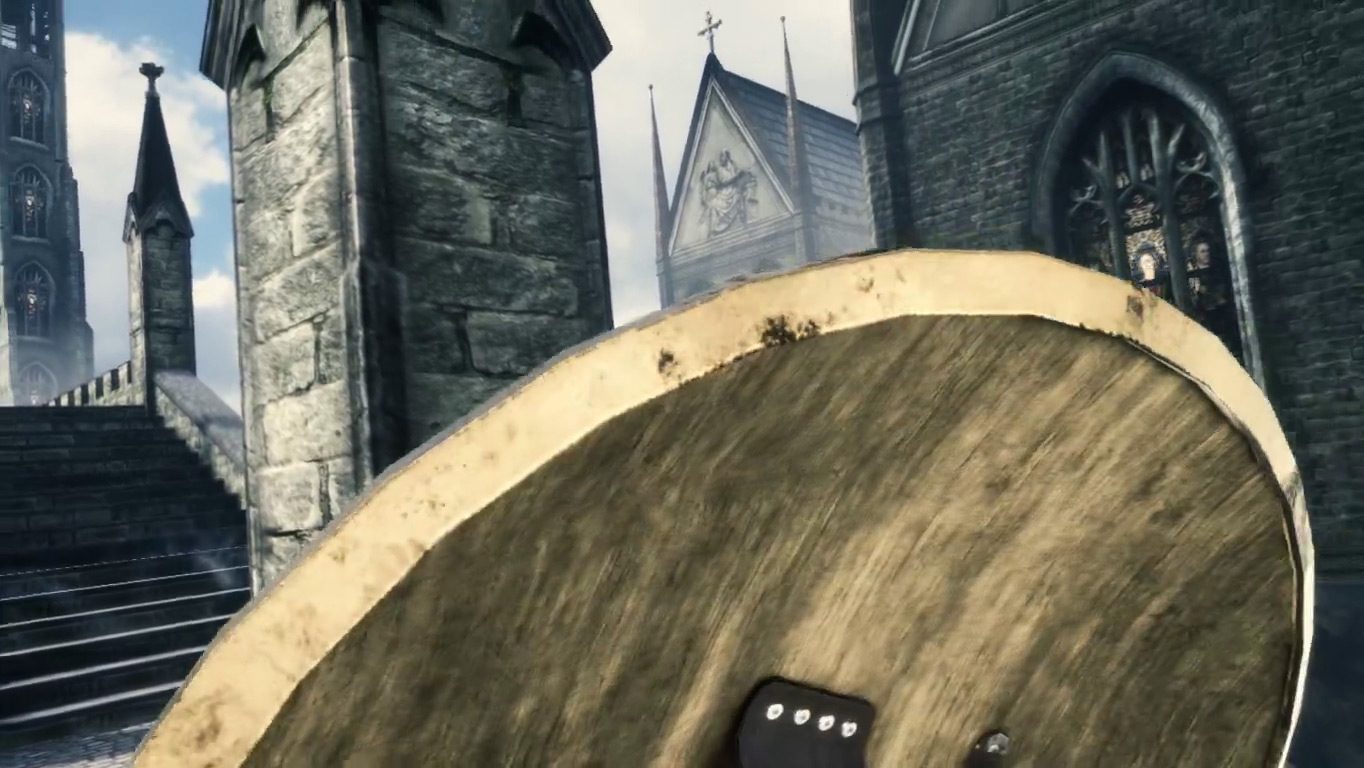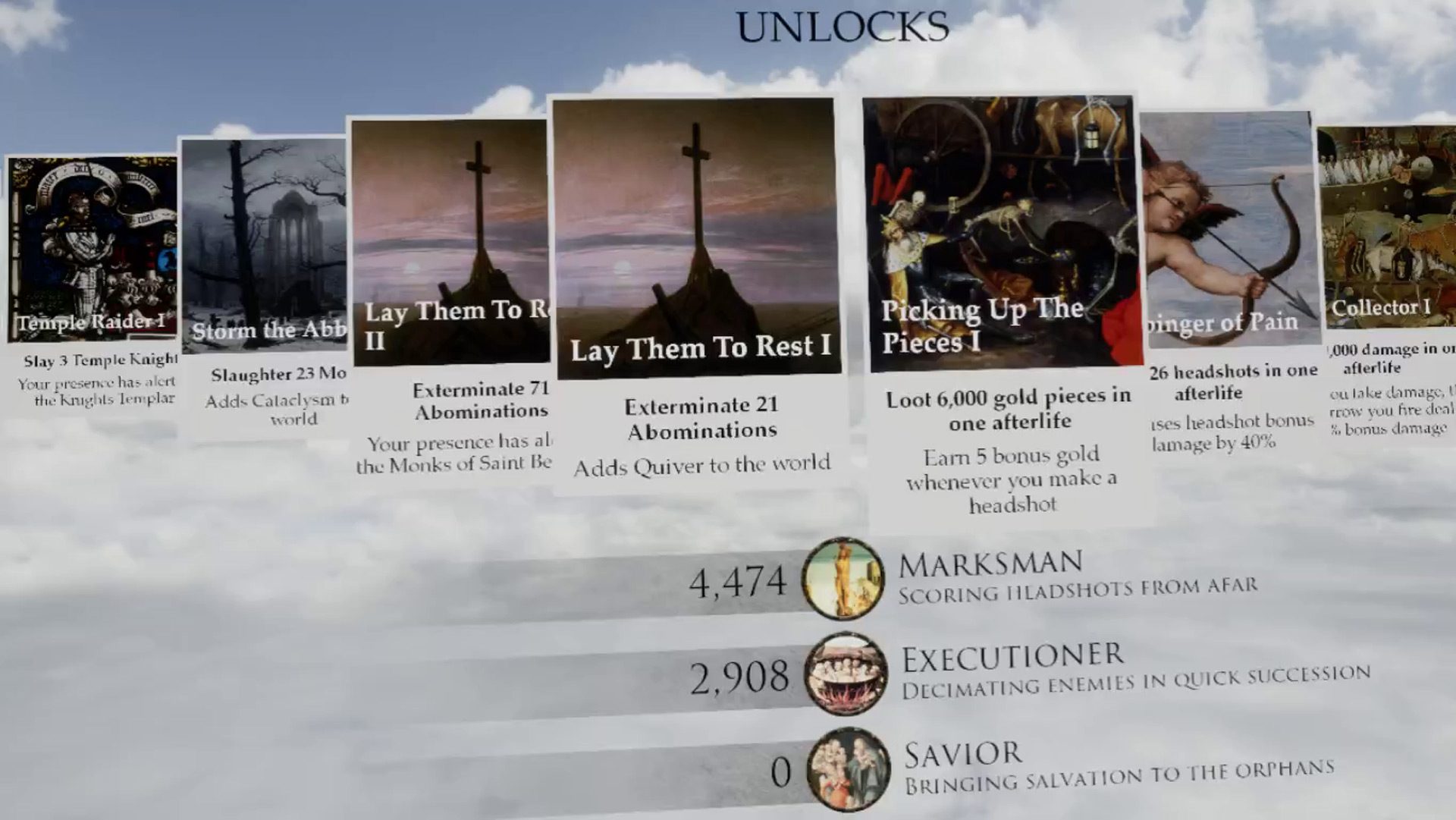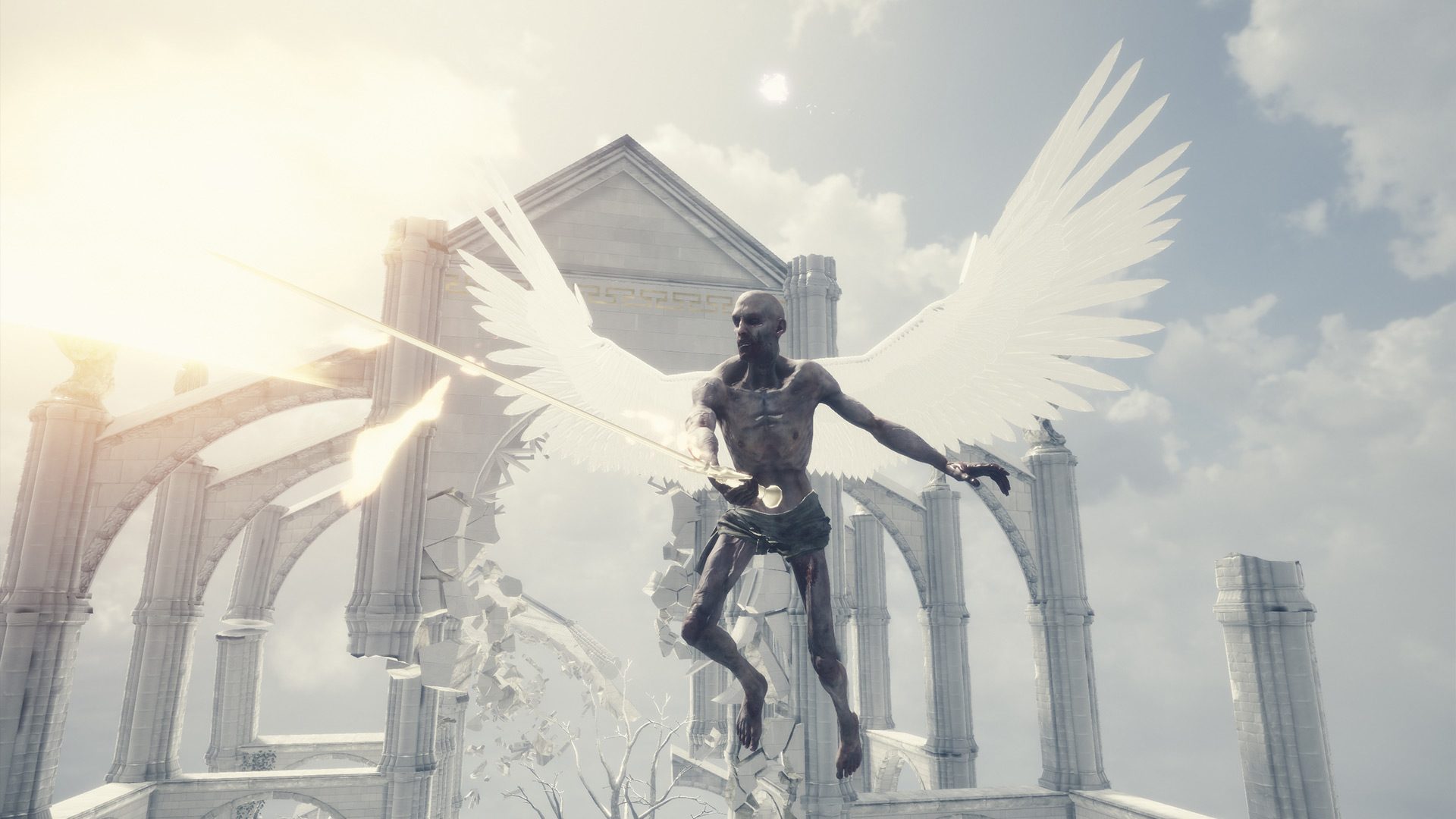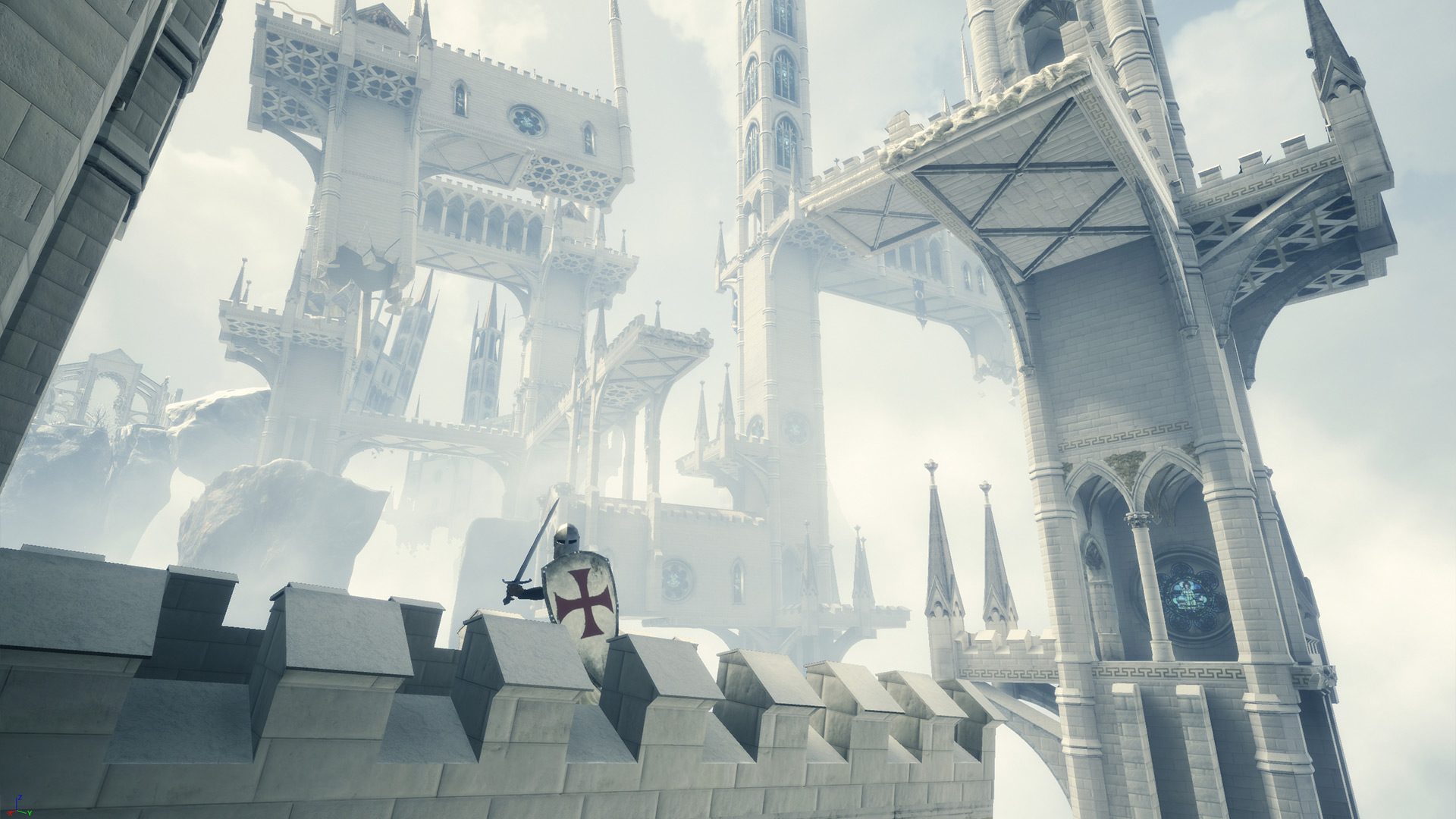I find roguelikes to be somewhat masochistic. You play as far as you can even when you know death will put an end to every ounce of hard work you put in—all of it with the knowledge that when you hit the restart button, that everything has changed and all of the challenges are rearranged; a true Sisyphean task that bears out just enough accomplishment to keep you going. This is In Death in a nutshell, a truly challenging VR bow-shooter set in a world where you’re given nearly zero respite, as you’re attacked by some of the most gruesome (and well-realized) goblins to creep out of the Necronomicon.
In Death Review Details:
Developer: Sólfar Studios
Available On: Steam (Vive, Rift, Windows VR), Oculus Store (Rift)
Reviewed On: Oculus Rift, HTC Vive
Release Date: October 2nd, 2018
Gameplay
In Death, game fresh out of Early Access, is a bow-shooter in its purest sense. You’ll have to get the feel for the bow’s mechanics to understand where your arrows will eventually fly; you don’t have a handy reticle, and enemy hitboxes are unforgiving, as you’ll regularly see your arrows flying between the gaps in crusaders’ legs, or millimeters above the head of a possessed demon-monk. The shooting mechanic is however rock solid, so the learning curve isn’t nearly as steep as you might think, letting even the newest player get fairly far in their run by keeping a little bit of cautious optimism and tactical room-clearing in mind as they move forward through the nightmarish world.
With a shield in hand, you can protect yourself from most arrow and melee attacks, although you can be quickly overwhelmed if you’re not careful.

There’s also a crossbow that you can select at the beginning of your run, but the lack of two-handed stability makes it difficult to use for long shots. I tended to stick to the bow, although the crossbow is useful for quickly knocking arrows for a rapid fire rampage against a room full of ghoulies or sticking as many explosive arrows into a boss as humanly possible. Then again, I’ve gotten pretty quick and accurate with the bow too.
With only six bars of health, and only a few opportunities to heal, you’re most assuredly going to die a miserable death whatever way you slice it. You aren’t going straight to Hell empty-handed though, because upon death you’ll be awarded a number of achievements that change the gameplay somewhat, be it for the better or worse (eg: far-away headshots do more damage, but you unlock harder class of baddie). This is, along with the ability to asynchronously challenge other online players to beat your single-player run through Purgatory, the main attractions to come back to the game after you’ve put it down.

Well knowing that it’s a typical roguelike, I still wish In Death had the substance of a single-player game with a campaign and a real story. Alas, this is the genre, and In Death exemplifies it to awesome effect. The level of detail put into In Death is astounding, and can really leave you feeling creeped out as you demolish a variety of monsters on your way through all of the cool and interesting side paths you can take. There’s always a terminus though with a level boss, but there’s also the promise of a demonic, giant version of the Archangel Gabriel should you get far enough (I didn’t. It’s too damn hard).

As for controls, you can teleport via either a hand-thrown teleportation ‘shard’ or a teleportation arrow that you load into your weapon. There is however also smooth forward locomotion which can be both head and hand relative. Rift users will also appreciate the variable snap-turn setting should you have the stock 180-degree sensor setup. And yes, there is both a righty and lefty option for weapons and shield.
I’ve played around seven hours of In Death over the course of several sessions, and I’ve yet to reach farther than an hour into the game because of its overall difficulty level. There is no difficulty slider, so you definitely need to temper your expectations when heading in as you make your way through the successively numbered Purgatories. At times, I found In Death too unforgiving. Getting to the level boss can take at very least 30 minutes of clearing out baddies leading up to the dungeon, where you then have to not only kill the boss, but a room of randomly spawning monks and ghoulies too, which is crazy hard without special arrows like poison or explosives, which you pick up eventually after a few deaths. Because there are no saves, you’re doomed to repeat yourself until you finally develop a strategy and get those pickups.
That said, I’m not a giant fan of the genre, although it’s clear In Death has nailed it pretty dead on, and there’s no faulting it for that.
Immersion
For much of the game you’re treated to a world of a perpetually shining sun that illuminates the fractured, but beautiful Gothic architecture—a tainted Escher-style mishmash of church steeples, monastic courtyards and long bridges that are suspended above the clouds. If it weren’t for all of the possessed monks, zombies, and crusaders trying to kill me, it would seem like a heavenly realm, and less like Purgatory – the Roman Catholic church’s theological supposition that a soul must first enter a hellish state of suffering before going to heaven.

The dramatic transitions from dark to light typically signal your impending doom, as you enter close-quarters combat and multiple baddies in a single area. The antithesis of this are the game’s ‘Pits’, which are dedicated dungeons featuring their own bosses.
The game’s positional audio is exceptionally good. While it doesn’t appear to have any type of ambient audio occlusion, each baddie has their own growl, and each thrown weapon that could so damage has a distinct noise, so even if you’re not faced directly towards the oncoming blow, you’ll hear it well in advance. This keeps you not only aware of the baddies in front of you, but gives you enough information to know when a monk has teleported behind you (nothing personal, kid).
Haptics are quite good too, as you draw your bow and feel a sort of progressive rumbling that feels like the growing tension of the bow-string.
Comfort
Teleportation is one of the most comfortable locomotion options outside of natural, room-scale locomotion. But even if you decide to use smooth forward, which simulates continuous walking, you’ll still be fairly comfortable.
While I prefer to play standing, In Death also includes a seated mode which will put your in-game height to a standing level, making it ideal for anyone with even an arm’s length of space in their play area.





